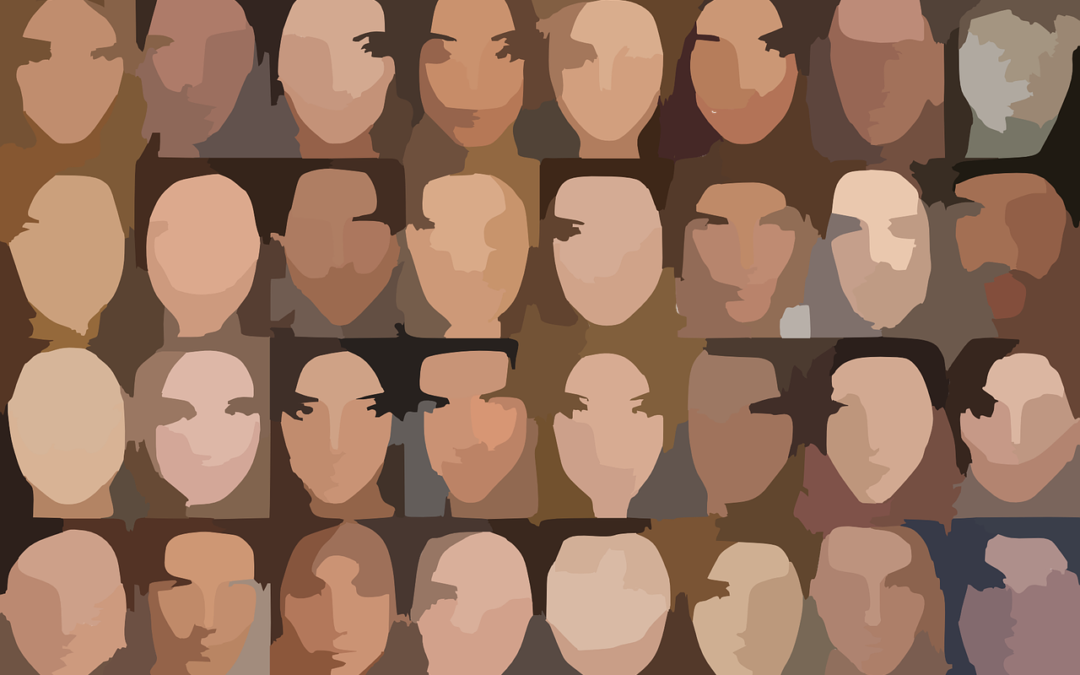Is it a good idea to create character bios? Should they be shared with others? What should they consist of?
I have a love-hate relationship with character bios. Both as a writer and as someone who often reads them in the treatments, synopses and series bibles of writers I work with.
I find them less than helpful to both writer and readers if they’re filled with miscellaneous details that don’t directly impact the main conflicts and objectives the characters are focused on in the script. Which they often seem to be.
I think it comes down to understanding what it’s important to know about your characters, and from that, what it’s important to communicate to readers (if you share this information with them at all).
The first and most important function of delving into your characters’ past is that you, as the writer, need to know them really well in order to write a good script. You need to know them better than the audience will ever know them. You need to know things about them that happened before the events of the script and in between the scenes you choose to include, so they become like real living creatures to you, who you could explain to others.
This is especially true about your main character in any story — the person whose emotional perspective you’re asking the audience to take on, and experience the story subjectively through. For an audience or readers to do that, they need to know what this person is thinking, feeling, wanting and trying to do, pretty constantly. It should feel like riding on their backs as they deal with the slings and arrows of their problem/goal, which should be very punishing for them to deal with, and really important to them (and thus the audience).
What matters most are two things:
(1) The character’s motivation. This is what they’re trying to achieve, externally, and why it matters to them so much. The life situation they’re in and the desires they form out of it likely connect to a past that has led them to this point — a set of experiences, as well as beliefs, priorities and choices made in reaction to them. You want to know what those are and how they led to their current status quo, and current wants.
(2) The character’s internal arc. Often the main character transforms in some key way because of all they’ve been through in the story. They start as one kind of person and end up as another, around some crucial issue that the story has explored, and will move forward after it with a new perspective and approach. Most often, a main character begins with a limited view of themselves, their possibilities and the world, and they end up changing that by the end. So as the writer, you have to know how and why they took on that limited view, and what they became as a result of that view, on the inside.
Anything that will help you understand those things is fair game in your work on character bios, no matter how small. You might ask yourself a series of questions about their childhood, family, and past, then try to answer them. What comes forth can all be useful, to some degree, but much of it will not provide a solid key to what you really need to know about them, and will not be worth sharing with others later.
What you really need to know is usually the core personality and psychology that your characters walk around with. What kind of person are they? What impression do they tend to make on others? What are their priorities? How do they go about pursing them? What are the beliefs and desires that most drive them? How do they feel about themselves, about life, about other people?
You might not get at any of this from asking the rather mundane factual questions that are often suggested for character back stories, about their childhood pets, hobbies, first job and the like.
So what questions do you need to ask to find the answers that will really be of value?
One tool I like to use is called the “Enneagram.” It’s a personality-typing system with 9 main types, each of which has 6 potential sub-types. It’s one of many ways of grouping people based on inherent traits. Meyers-Briggs is another. Or maybe you’re into astrological signs. But to me, the Enneagram is especially useful, because it gets at the deeper psychological underpinnings and central life wants that people tend to have.
There are many books on the topic (I use The Wisdom of the Enneagram) and much free information online, but the central gist as I see it is that early childhood experiences lead people to have a different kind of focus as to what they feel they need to do and be, to be okay in life, and to feel safe, happy and loved.
For some, they need to challenge people who they are afraid will otherwise dominate and subjugate them.
Others feel they need to have deep expert knowledge and mastery of a subject.
A third type feels they need to help others and prove indispensable to them.
All of us probably have a little bit of each of these types in us (as might your characters), but one central thrust tends to come to the foreground when you complete an Enneagram questionnaire, and it can tell you a lot about who your character is. And I mean the important stuff which will dictate what kinds of conflicts they have, key desires, unmet needs, fantasies, fears, etc. All the deep personal issues and wants which end up being explored, poked and prodded in a story.
There is also a “healthy” and “unhealthy” way of being any of these types (and a whole spectrum in between) that can help you imagine how your character might behave under extreme stress, when they’re feeling most lacking, or with their lowest possible self-image, as opposed to the more actualized version they might get close to at their best moments, and perhaps at the end of a story.
If you can understand these internal keys to your character and where they came from psychologically and as personalities, you’ll have the kind of information that I think is most helpful for both their back story and in knowing how they might behave in the story itself.
And if you turn some of that into character bios to share with others, my recommendation would be to focus on these kinds of traits and how they got them, and how it will be strongly relevant to the story conflicts and objectives they will be engaged in. Brevity and focus are your friends here. Nothing can bore a reader quite like long miscellaneous bios for many different characters which focus on superficial or mundane elements.
Ultimately the goal is not so much to know the random facts or complete history and resume, but the deep drives, the inner workings, and what those cause them to seek in life, and show up as, when they deal with others and with challenging situations. (Which might be inspired by people you’ve known, and/or elements of yourself.)
If you can really understand those qualities, you will be best positioned to help an audience get to know them, relate to them, buy into them as real and specific, and ultimately even care about them. Which I think pretty much sums up the screenwriter’s most important job.



Thanks for this idea Erik. I particularly like the Enneagram part of it. I guess one could go further and create Twitter profiles for some of your characters, that would really test their mettle, as well as keeping you away from doing any actual writing. Just a thought.
Anything that causes more procrastination, of course we writers are down for it! 🙂
Although I suppose creating a whole account and tweeting in your character’s voice might force one to understand them better…
Just finished reading your book (it’s Russian edition). Thank you for your book and for the blog (that Thank God!) is mentioned in the end of the book. It truly helps me with my writing!
So nice to hear that, thank you Anna! You’re officially the first reader of the Russian edition I’ve heard from!!
I am reading ‘The Idea’ presently and am excited to start reading this blog! Really enjoying both! Thanks so much!
Glad to hear, Maria! Thank you and I hope you find the book and blog useful…
I also have your book and love it.
So nice to hear! Thank you Cynthia!
“Most often, a main character begins with a limited view of themselves, their possibilities and the world, and they end up changing that by the end.”
So much wisdom about storytelling summed up in one sentence!
I also love the enneagram for understanding different character motivations. The Enneagram Institute is my favorite online resource. I’ve also attempted to summarize the nine types and how helpful they are for writing character arcs.
Thanks for your newsletter. I always find it to ignite inspiration.
So cool to hear that – thanks Lara!
In my opinion this is a very interesting and helpful blog!
Always a pleasure to read your blog posts. Thank you